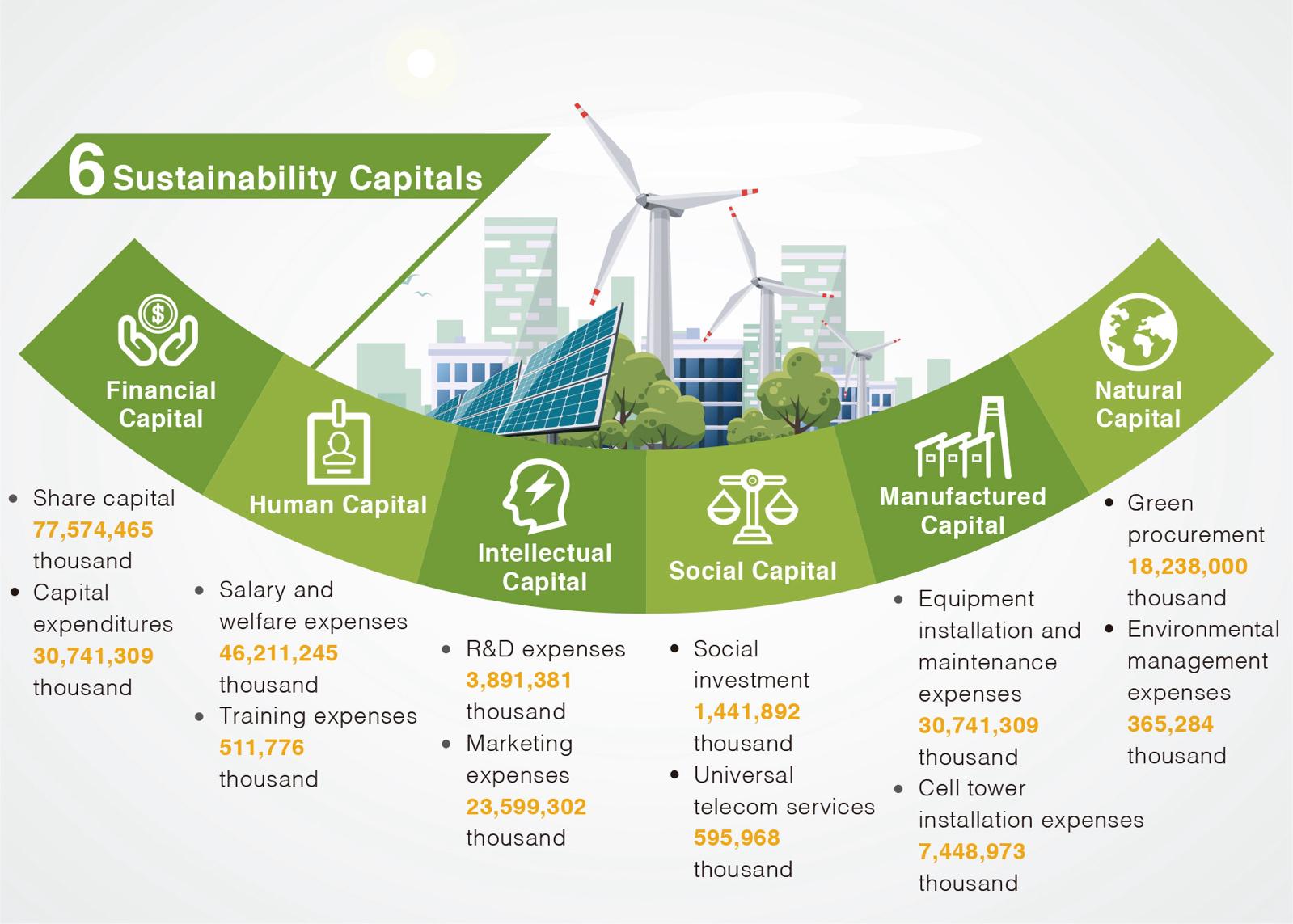Sustainability Vision & Strategies
After the official privatization in 2005, Chunghwa Telecom taps into the core business competencies in line with the ICT development and the challenge of rapid changes in the environmental and social issues. With “Pilot Smart Living; Facilitate Sustainable Development” as its vision, it allocates six capitals into five focused areas of sustainability to elevate the corporate operation and service performance; facilitate the momentum for industrial transformation toward sustainability with improvement of values for shareholders and corporate sustainability; and boost the competitiveness of the ICT industry in Taiwan to guide the broader society to a digital life of sustainability!
The Four Core Values of Corporate Governance
| Value | Description |
|---|---|
| Integrity |
Criteria: Be honest, abide by the law, and keep our promises Spirit:
|
| Trust |
Criteria: Put the customer first – give priority to customer service Spirit:
|
| Innovation |
Criteria: Step outside of the comfort zone to forge new ways of thinking and doing Spirit:
|
| Accountability |
Criteria: Deliver results, and have the courage to take responsibility Spirit:
|
6 Sustainability Capitals



